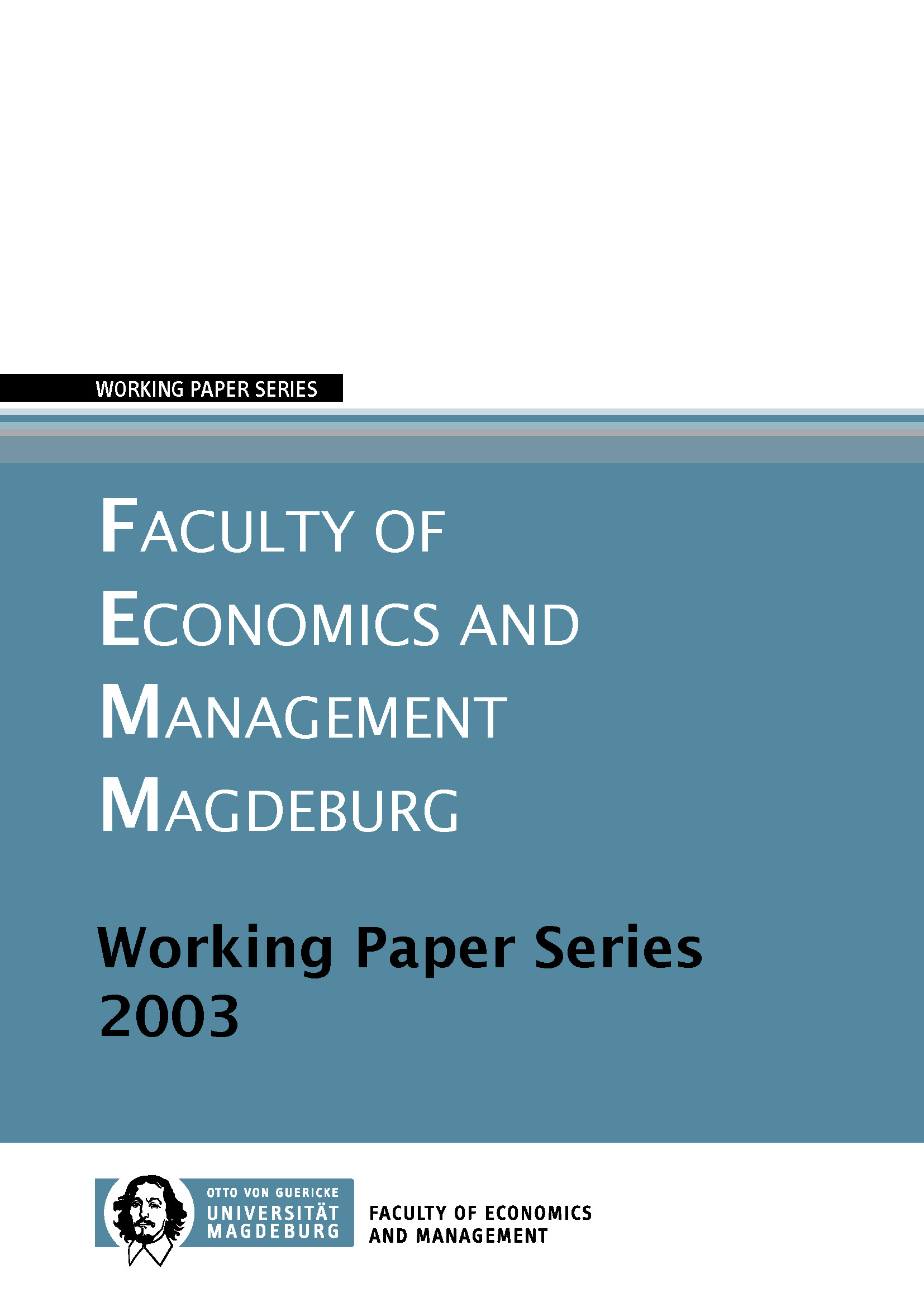Workfare and Trade Unions
Labor Market Repercusions of Welfare Reform
Schlagworte:
workfare, welfare reform, trade unions, involuntary unemploymentAbstract
Workfare proposals concentrate on the work incentives for welfare recipients, thus focusing on the labor supply side. This paper analyzes the effects workfare has on labor demand when the labor market is unionized. As workfare reduces the number of recipients of public financial assistance, a workfare regime, as opposed to a welfare system, weakens the outside option of trade unions in wage negotiations. It is shown that revenue-neutral workfare enforcement where any surpluses are rebated by i) reducing the income tax or ii) increasing a workers' tax credit, unambiguously decreases gross wage rates and thus decreases equilibrium unemployment. Though trade union members may be worse off as a consequence of workfare enforcement, their compensation for the wage reduction is highest when the revenue-neutral rebate of savings is used to increase worker-specific tax credits


